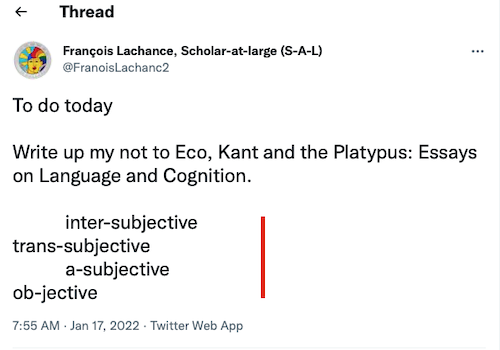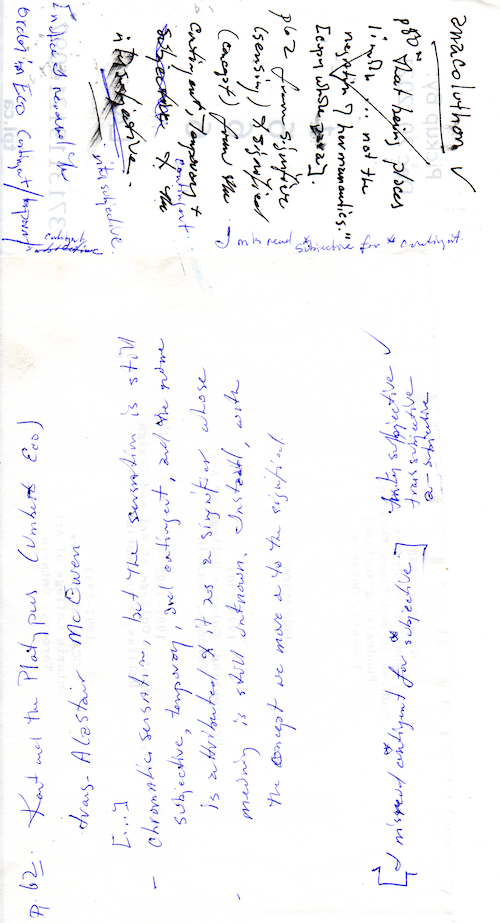Umberto Eco
Kant and the Platypus: Essays on Language and Cognition
Translated from the [1997] Italian by Alastair McEwen
New York, San Diego, London : Harcourt Brace & Company
2000
PAGE: 62
But all things considered, Peirce distinguishes the two moments: both are identified with the naming of that which is experienced, and to name its always to make a hypothesis (just think of Marco Polo’s efforts in this regard). But the names given to recognize sensations (such as the sensation of redness) are casual, not truly motivated; they serve only to distinguish (as if by sticking a label on them) a certain sensation from others; I say that I sense redness to exclude other possible chromatic sensations, but the sensation is still subjective, temporary, and contingent, and the name is attributed to it as a signifier whose meaning is still unknown. Instead, with the concept we move on to the signified.
my initial resorting:
from signifier (sensing) to signified (concept) from the contingent, temporary + subjective to the intersubjective
Note: as evident from my crossing and recrossing, I was/am having some thoughts about the subjective, intersubjective and the trans-subjective
Note: I mixed up *contingent for *objective
inter-subjective
trans-subjective
a-subjective
ob-jective
inter-subjective
trans-subjective
a-subjective
ob-jective

All this work was done under the sign of anacoluthon — expecting the missing unexpectedness …

And so for day 3048
16.04.2015
